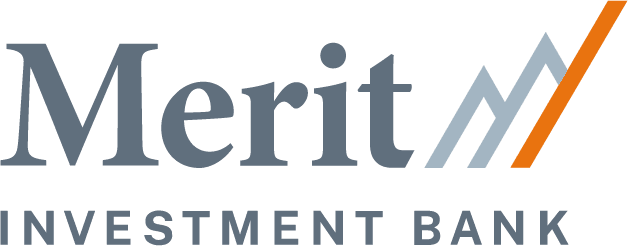In today’s highly competitive and fast-changing corporate landscape, mergers and acquisitions (M&A) remain one of the most powerful strategies for scaling operations, entering new markets, acquiring talent, or gaining technological capabilities. However, for every successful deal that closes, many others stall or fall apart—often due to avoidable missteps. Whether you’re a first-time seller or a seasoned acquirer, understanding and anticipating the most common M&A deal killers can make the difference between a transformative transaction and a costly setback.
In this expanded guide, we explore both foundational and often-overlooked reasons deals fail, and provide actionable strategies for CEOs, founders, and private equity professionals to proactively mitigate risk and navigate M&A transactions with clarity and confidence.
1. Diligent Due Diligence: The Foundation of Deal Viability
M&A success begins and ends with thorough, uncompromising due diligence. This multi-dimensional analysis extends far beyond financial statements—covering legal exposure, intellectual property, employee contracts, tax liabilities, IT infrastructure, cybersecurity protocols, and cultural compatibility.
Too often, buyers uncover hidden issues late in the game, forcing price renegotiations or causing the deal to collapse altogether. Key elements of a robust due diligence process include:
- Operational audits that identify bottlenecks and inefficiencies
- Human capital assessments to uncover key employee risks or cultural misalignment
- Legal and compliance reviews to avoid inherited liabilities
- Tech stack evaluations, especially in SaaS and tech-heavy targets
Modern acquirers are also adding ESG (Environmental, Social, Governance) risk assessments as investors demand higher standards of transparency and accountability. Engaging a cross-functional team of advisors can provide the clarity needed to de-risk the deal and create a firm basis for negotiation.
2. Financial Fortitude: Managing Capital and Structuring Smart Deals
A major roadblock in M&A transactions stems from poor capital planning or unrealistic valuation expectations. Whether funding a leveraged buyout, recapitalization, or strategic acquisition, having access to adequate and flexible financing is essential.
Key strategies for avoiding funding failures include:
- Pre-qualifying capital sources and building relationships with lenders and equity partners early
- Stress-testing the deal model with various scenarios (interest rate hikes, slower growth, delayed synergies)
- Structuring earn-outs and seller financing to bridge valuation gaps and align incentives
- Engaging an M&A-focused financial advisor to vet deal structure and tax implications
Well-funded buyers not only close deals faster, but also enjoy a reputation in the market that improves seller engagement and trust—critical in competitive deal environments.
3. Regulatory Resilience: Mitigating Legal and Compliance Risks
Many M&A transactions fall apart due to regulatory complexity, especially in industries like financial services, defense, healthcare, energy, and biotech. Cross-border M&A also introduces compliance with antitrust laws, data privacy regulations like GDPR or CCPA, and foreign ownership restrictions.
Buyers should:
- Conduct a pre-transaction regulatory risk review
- Engage sector-specific legal counsel to interpret industry-specific regulations
- Prepare and submit timely regulatory filings and proactively communicate with relevant authorities
- Factor in the timeline for regulatory approvals in overall deal scheduling
Buyers with a clear compliance strategy not only protect themselves from post-close litigation, but also ensure faster, smoother closings.
4. Beyond the Basics: Additional M&A Deal Killers to Watch For
While financial, legal, and operational issues are often cited as deal breakers, other, less tangible factors can be just as deadly if overlooked.
Strategic Misalignment
Lack of shared vision or mismatched business models between buyer and seller can destroy value post-close. Ensure both sides share a unified understanding of:
- Growth priorities
- Product roadmap alignment
- Customer segmentation and go-to-market strategy
A strategic fit analysis—ideally conducted during early conversations—can uncover disconnects before time and resources are wasted.
Cultural Clashes and Poor Integration Planning
Culture is frequently overlooked in the diligence phase but can quickly become a leading cause of post-merger dysfunction. Low morale, leadership turnover, and stalled integration efforts can erode value.
Best practices include:
- Early cultural assessments and leadership workshops
- Transparent communication plans that explain “what’s changing and why”
- Retention packages and integration teams to manage the transition
Incentive Misalignment Among Key Stakeholders
Whether it’s founders, executive teams, or private equity backers, if stakeholders aren’t aligned on deal timing, valuation, or structure, friction can kill momentum.
Solutions include:
- Clear equity participation agreements
- Defined performance-based earn-outs
- Third-party facilitation to mediate and unify objectives
Synergy Miscalculations
Overestimating revenue synergies or underestimating integration costs remains one of the top causes of M&A underperformance. Realizing synergies requires disciplined planning, cross-functional collaboration, and accountability.
- Build a 100-day integration plan
- Track KPIs and synergy milestones
- Regularly revisit and revise assumptions as integration unfolds
5. Communication Gaps: The Silent Deal Killer
Poor communication—internally and externally—can sink even the strongest deals. Employees fear change, customers worry about service continuity, and investors demand transparency. Managing the narrative is vital.
Leaders should craft a strategic communication plan that addresses:
- Key internal milestones and changes
- Customer FAQs and service guarantees
- Investor expectations and reporting timelines
- Media and PR messaging to reinforce stability
Maintaining trust across all stakeholder groups during the deal process can reduce uncertainty and accelerate integration readiness.
Conclusion: Close Strong with Strategy, Foresight, and Execution
M&A transactions represent some of the most complex and high-stakes decisions a leadership team can face. While the rewards can be immense—market expansion, increased valuation, accelerated growth—the risks are equally high. From due diligence breakdowns to cultural misalignment, regulatory setbacks to synergy overestimation, the potential for failure is real.
Yet, with the right strategy, advisors, and mindset, these risks are manageable.
CEOs, founders, and corporate development teams that approach M&A with discipline, foresight, and humility dramatically improve their odds of success. At JD Merit, we help clients navigate this complexity and execute winning M&A strategies designed for value creation and long-term growth.
Ready to Avoid Deal Killers and Drive a Premium Exit?
Talk to the Experts at Merit Investment Bank
J. Craig Dickens
Chairman


0 Comments